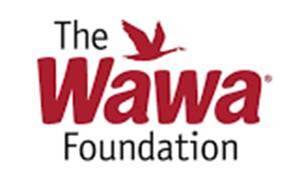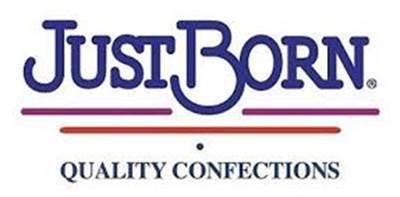Follow Us On Facebook
Thanks to the amazing team at Robert Half volunteering with us, we had a blast! 🙌 Your hard work and kindness make a huge difference in the communities we serve. Together, we can continue to create positive change. Thank you for being our partners in making the world a better place! 💖
Feel free to share your own volunteering experiences in the comments below. #Robert Half #CommunityCare #volunteersrock
... See MoreSee Less

March is National Nutrition Month® and the theme this year is Food Connects Us!
Family meals are a great way to use food as a connector! Sharing meals together boosts nutrition, supports healthy habits and strengthens relationships.
Try one of these easy tips to make family meals happen more often in your home:
-Keep it simple: Attempting to make a meal with 20 ingredients is a recipe for disaster. Instead, build a small collection of go-to recipes to help you get in and out of the kitchen in under 30 minutes.
-Choose ingredients that multitask: Ingredients you can use for more than one meal can be a major time saver. Instead of making just three chicken breasts, consider making six. This way, you can use the extras in other dishes such as chicken salad or fajitas.
-Make it a habit: Make sure each family member knows that everyone is to be home for dinner at a particular time. When everyone expects to enjoy dinner at 5 p.m. on Sunday, they'll begin to look forward to this family time and will arrange their schedules around it.
-It's OK to ask for help: If you’re feeding the whole family, you already have helpers right at your fingertips. Ask others to set the table, pour drinks or help make a salad.
-Make it fun: Add some fun and excitement with food themes. Throw a blanket on your family room floor and enjoy a picnic. Let everyone choose a theme and you'll see that your choices are endless.
Which will you try first?!
#nationalnutritionmonth #NNM #trynewfood #feedingpennsylvania #feedingPA #foodpantry
... See MoreSee Less

🎉 Shoutout to our March Volunteer of the Month: Marty! 🎉
Marty's dedication to picking up retail recovery items from local supermarkets is truly inspiring. His efforts help us make a real difference in our community. 🌟
Thank you, Marty, for all that you do! 💙 Let's give a round of applause to celebrate our amazing volunteer! 👏
#volunteerappreciation #ourhero
... See MoreSee Less

Please help us sdvocate for lasting solutions to hunger!
Urge Congress to prioritize ending hunger in 2025. It only takes 2 minutes to fill out the form below, and your voice will be heard.
act.feedingamerica.org/ii3dbKfyd06loldfuL-yRQ2
#feedingamerica
... See MoreSee Less

Copyright © 2025 · All Rights Reserved · Allentown Area Ecumenical Food Bank · Terms of Use










Impacts of Hunger
The U.S. Department of Agriculture (USDA) defines hunger as a physiological state of discomfort resulting from a chronic shortage of food intake.
The USDA defines “food insecurity” as the lack of access, at times, to enough food for all household members. Food insecurity exits in every county in America. USDA data from 2014 indicated that 14 pct. of American households, or 17.4 million, were food insecure at sometime during the year.
Although related, food insecurity and poverty are not the same. Poverty in the United States is only one of many factors associated with food insecurity. People living above the poverty line are often at risk of hunger as well. In fact, higher unemployment, lower household assets, and certain demographic characteristics also lead to a lack of access to adequate nutritious food.
Research has shown that the impact of food insecurity on adults can lead to health problems, including obesity due to cycles of food deprivation, overeating and poor food choices; high levels of stress, anxiety, and depression; and diet-sensitive chronic diseases including hypertension, hyperlipidemia, and diabetes.
According to Feeding America research, African-American households are more than twice as likely to be food insecure as white, non-Hispanic households. More than one in four African-American households, or 26 pct., are food insecure as compared with about one in ten Caucasian households, or 11 pct.
Latino households are more than twice as likely to be food insecure as white, non-Hispanic households. More than one in five Latino households, or 23 pct., are food insecure as compared to 14 pct. of white, non-Hispanic households and 14 pct. of all American households.
Impact of Hunger on Children
Food insecurity is harmful to everyone, but it can be devastating to children. It can greatly affect their development, overall physical health, mental well-being, cognitive and academic abilities, and emotional and social well-being.
According to the USDA:
Numerous studies by Child Trends DATA BANK and other entities also report that food insecurity is associated with higher rates of behavioral problems in three-year-olds; psychosocial deficits, as well as higher anxiety and depression in school children. In adolescents, studies link food insecurity to higher rates of depressive disorders and suicidal symptoms. Food insecure children show smaller gains in mathematics and reading achievement. Children who are hungry or undernourished also have more difficulty fighting infection. Therefore, they are more likely to become sick, miss school, and fall behind in class.
Counter-intuitively, childhood food insecurity is also associated with a greater risk for being overweight. While the process is not completely understood, food insecurity can lead to poor diet quality, less nutritional variety, and unpredictable availability of food, which can lead to overeating.
In a new analysis, scientists found that children who went hungry at least once in their lives were two-and-a-half times more likely to have poor overall health 10-15 years later compared with those who never had to go without food.
The form is not published.
The Allentown Area Ecumenical Food Bank is Allentown’s only daily food bank, assisting families in need from Monday through Friday. Every dollar of your support helps provide this crucial support to approximately 57,000 people or more each year.